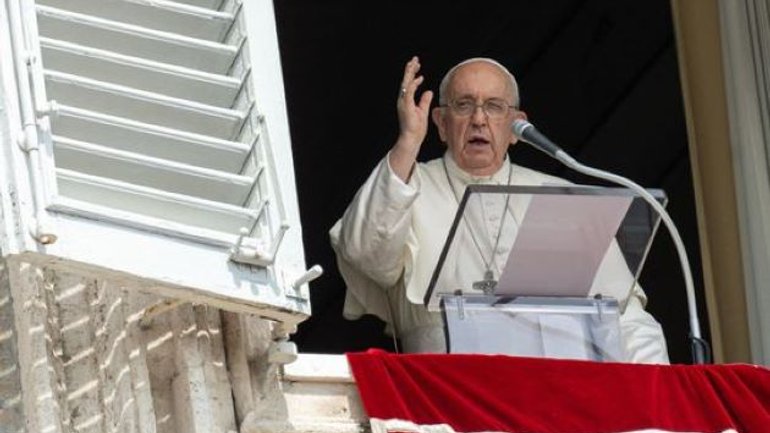Pope Francis Praises Historical Russian Imperialism Amid War in Ukraine

By Francis X. Rocca
Pope Francis praised 18th-century Russian emperors whom President Vladimir Putin has invoked as models for his territorial annexations in Ukraine, in the pontiff’s latest controversial statement relevant to the war.
On Friday, speaking by video to a gathering of Russian Catholic youth in St. Petersburg, Pope Francis urged them to follow in the path of Peter the Great and Catherine the Great, whom he called rulers of a “great, enlightened empire of great culture and great humanity.”
The comments on Peter and Catherine, which came at the end of the pope’s speech, weren’t included in the official transcript released by the Vatican, but were released by the Catholic diocese of Moscow and later in a video from Siberian Catholic television, a church agency.
Putin has cited Peter, who expanded Russian territory and curtailed Ukrainian autonomy, to justify the current invasion. Putin has used the term Novorossiya, or New Russia, for Russian-occupied southern Ukraine—using a term that dates back to Russia’s conquest of southern Ukraine under Catherine in 1764.
Catherine also harbored the Jesuit order, of which Pope Francis is a member, during the order’s suppression by Rome in the late 18th and early 19th century.
The Ukrainian government declined to comment, but the pope’s remarks drew angry reactions on social media, especially in countries near Russia. Former Estonian President Toomas Hendrik Ilves called the comments “truly revolting” on X, formerly known as Twitter. Nexta, a Belarusian media outlet based in Warsaw, Poland, posted on the same platform: “By the way, the Catholics of Poland, Lithuania and Belarus raised uprisings three times against this ‘enlightened empire’.”
In a statement released on Monday afternoon, the Vatican’s embassy to Kyiv rejected suggestions that “Pope Francis might have encouraged young Russian Catholics to draw inspiration from historical Russian figures known for imperialistic and expansionist ideas and actions that negatively impacted neighboring populations, including the Ukrainian people.”
“Pope Francis has never endorsed imperialistic notions. On the contrary, he is a staunch opponent and critic of any form of imperialism or colonialism across all peoples and situations,” the statement said.
Pope Francis has frequently decried Ukrainian suffering since Russia’s full-scale invasion in February 2022, but he has refrained from explicitly condemning Moscow for the war, while suggesting it may have been provoked by the enlargement of the North Atlantic Treaty Organization in Europe’s east. The pope’s stance has drawn criticism from Ukrainians including leaders of the Catholic Church there.
The pope has repeatedly cast the war in Ukraine as a struggle between the Russian and U.S. superpowers, with Ukraine as a victim caught in the middle. “There are imperial interests at stake, not just the Russian empire, which has been around since Peter the Great and Catherine the Great, but the other empires too. There are these empires. And empires put nations in second place,” the pope said in a March interview with Swiss public television.
The Vatican has offered to broker a peace agreement in Ukraine, and Italian Cardinal Matteo Zuppi has traveled to Kyiv, Moscow and Washington as the pope’s envoy in pursuit of that mission. But neither Ukraine or Russia has shown interest in mediation.
In May, Ukrainian President Volodymyr Zelensky met the pope in Rome and called on him to support Kyiv’s formula for peace, based on the withdrawal of Russia’s invasion forces, the restoration of Ukraine’s internationally recognized territory, war-crimes prosecutions and reparations.









